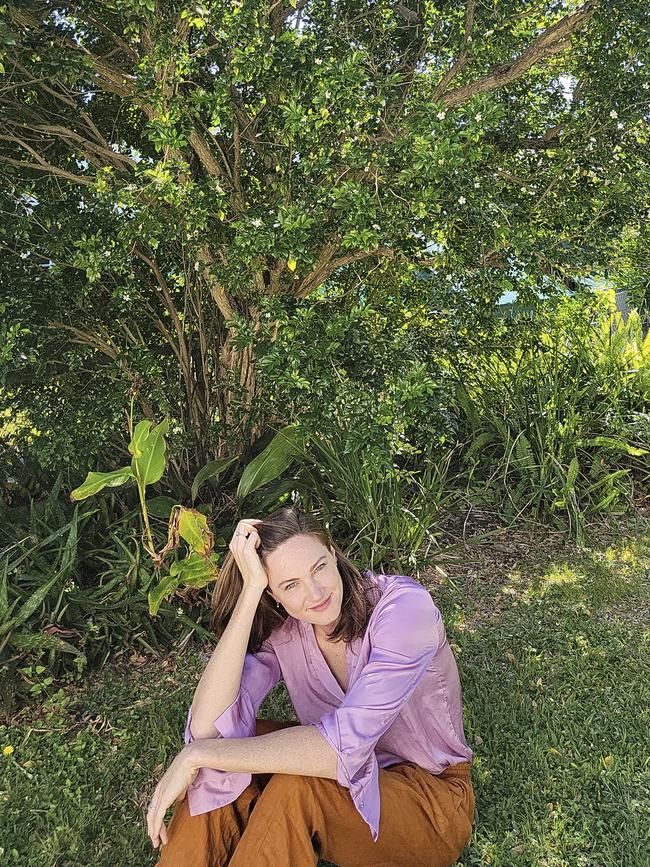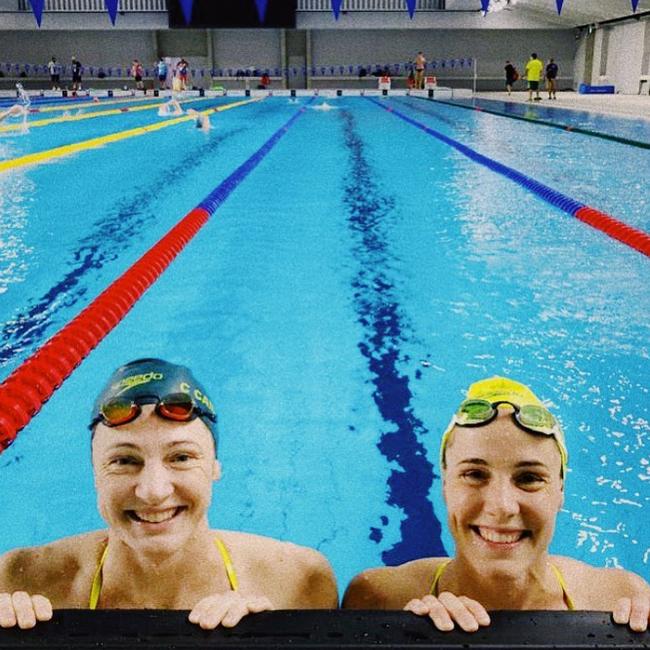Olympian Cate Campbell on the moment her weight became an obsession
Olympic swimming champion Cate Campbell reveals the moment she realised her weight had become an obsession in an exclusive extract from a new book she has written with sister Bronte.
Stellar
Don't miss out on the headlines from Stellar. Followed categories will be added to My News.
“Don’t cry over spilt milk.” Well, it was 9pm and I was sitting in the dark at the bottom of my parents’ garden bawling my eyes out. Except it wasn’t spilt milk I was crying over – it was full-cream milk.
Specifically, that we only had full-cream milk in the house. I had pushed myself to the brink that day; I was so hungry, I needed something to take the edge off so I could fall asleep.
I had gone to make a cup of decaf coffee; only after I’d prepared everything did I realise we were out of lite milk. I faced an impossible conundrum: put in the full-cream milk, cop the extra calories and drink the coffee, or discard it and remain hungry.
I chose option A. I put the milk in, took a few sips and – as the insistent pangs of hunger momentarily abated – instantly felt ashamed.
How could I be so weak? How could I cave in so quickly? Self-loathing coursing through my veins, I dumped the half-drunk coffee in the sink and sprinted for the front door.

In a few years I had gone from a shy but quietly self-assured young swimmer, one of the brightest hopes for the future of Australian swimming, into this faded, washed-out version of the girl who once had the dreams of the nation on her shoulders.
In 2010, like Bronte, I’d had glandular fever and post-viral fatigue. I had qualified for the Commonwealth Games in Delhi, but as my health declined, it became apparent I wasn’t going to be in any shape to compete. So I withdrew.
I continued to train. However, the harder I pushed, the worse I felt. That’s the nature of post-viral fatigue – the only cure is complete rest. Being tough was something I always prided myself on and, combined with my performances in the pool, it formed an integral part of my identity.
Being told to stop training, relax and finish school like any normal 19-year-old was so incongruous with my perception of myself, I felt like my whole world had been pulled out from under me.
I didn’t know who I was outside of the swimming pool and, to be honest, I didn’t really want to find out. With my identity in freefall and my life seemingly spinning out of my control, I focused on two things: to resume my swimming career and my weight.
Weight was, and still is, always a topic of conversation on pool decks or in swim teams. On my first Olympic team in 2008, all the girls were specifically told to use smaller plates at dinner so we wouldn’t overeat.

Swimmers in other programs were subjected to weekly weigh-ins – in front of their entire squads – and publicly admonished if they had gained even a few hundred grams. The general consensus from most other male coaches was: the skinnier the better.
Some of this mindset had begun to rub off on me, so when I was forced to take time away from swimming, I was determined not to gain any weight. By the time I was ready to start training again at the end of 2010, I was 10kg lighter than I had been as an athlete.
I wasn’t giving my body enough fuel to run properly, I stopped having periods, and remained lethargic and weak. I had missed the 2011 World Championships team and was showing no signs of improving.
So, as I sat at the bottom of the garden, sobbing into my knees, I realised something had to change. I needed help.
I went to see a nutritionist, and began to speak to my friends and family about my struggles and asked them to help me confront this issue. I was put on an eating plan. Slowly there were improvements, both in the pool and out of it.
I steered clear of the scales. I still advocate that we should not be measuring our health by numbers – not calories, not kilograms, not skin-fold measurements, not clothing sizes. Instead, I focused on what I was
able to achieve.
Within a few months of seeking help I was back to near-full fitness and strength, and at the 2012 Olympic Trials, Bronte and I qualified for our first Olympics together – a moment that remains one of the highlights in my career.
This is an edited extract from Sister Secrets by Cate Campbell and Bronte Campbell, (Allen & Unwin, $24.99), out Tuesday.
For more Stellar exclusives, pick up a copy inside this weekend’s The Sunday Telegraph (NSW), Sunday Herald Sun (Victoria), The Sunday Mail (Queensland) and Sunday Mail (SA).




